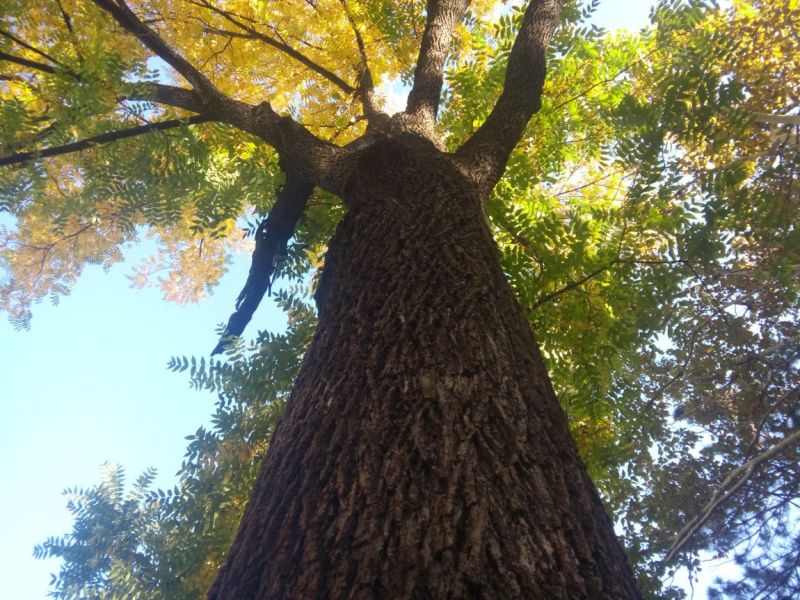Black Walnut
Black Walnut (Juglans nigra) — a tall, decorative tree known for its strong wood and nutritious nuts. Preferring sunny spots and well-drained soils, it grows quickly and provides ecological benefits, although it releases a natural compound, juglone, which can affect nearby plants.
Black Walnut (Juglans nigra) — a tall, long-lived tree, often reaching heights of 30-40 meters, distinguished by its sturdy, straight trunk, broad crown, and attractive pinnate leaves. Black Walnut is valued for its edible nuts with a rich flavor, and selective breeding has produced varieties with thinner shells, making the nuts more accessible. This tree can grow both as an orchard crop and in forest plantings, as well as in urban environments, where it thrives in polluted air and actively purifies it.
Natural Range and Cultivation: Native to eastern and central North America, Black Walnut is cultivated globally for its decorative, economic, and ecological benefits. Due to its powerful root system, which is stronger than that of the English Walnut, Black Walnut is widely used in North America as a rootstock for English Walnut varieties. This practice enables the establishment of commercial walnut orchards on poorer soils with reduced irrigation needs and increased yields.
Ecological Role and Resilience: Black Walnut prefers sunny exposures and well-drained, fertile soils with neutral or slightly acidic pH, though it can adapt to a variety of conditions. It grows best in deep, nutrient-rich soils and tolerates drought well but is sensitive to waterlogging. It also has the unique potential for mycorrhizal association with fungi, such as truffles, oyster mushrooms, and others, enhancing soil health and ecosystem interactions.
Growth and Pollination: Black Walnut grows relatively quickly, especially in well-lit areas. In spring, it blooms in April-May, attracting pollinators with its pollen-rich flowers. Its robust root system stabilizes soil effectively, and the leaves and nuts provide food for forest animals.
Economic Value: Black Walnut wood is highly prized for its strength, dark color, and resistance to decay, making it a sought-after material in furniture making, cabinetry, and woodworking. The nuts, now available in thinner-shelled varieties, are nutritious and popular in both culinary and cosmetic products.
Interesting Facts: Black Walnut releases a natural compound, juglone, which can inhibit the growth of certain nearby plants. Its strong rootstock supports the grafting of English Walnut varieties, creating resilient commercial orchards on poorer soils with higher yields and lower irrigation needs.


